'Ameen Sayani was copied by generations. Now everyone is trying to become smaller Ameen Sayanis in their own way.'
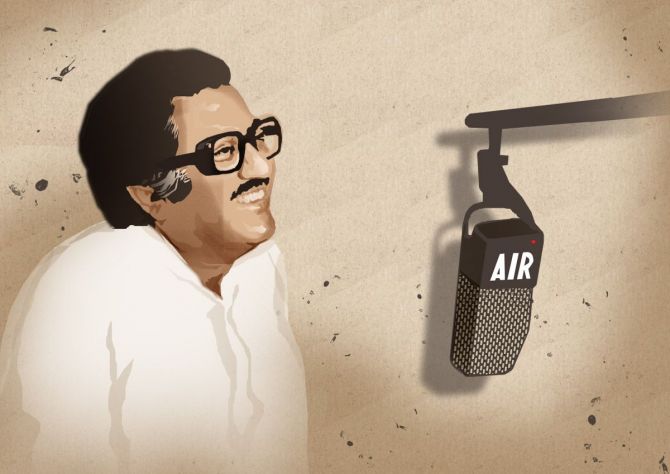
In 1960, when the film Dil Apna Aur Preet Parai hit the theatres, one of its songs drew frowns from an information and broadcasting minister, notoriously wary of the corrupting influence of Hindi film music.
Sheesha‐E‐Dil Itna Na Uchhalo was the 'decadent' song that riled B V Keskar.
On his orders, a clerk pasted a ban sticker on the album's 78 RPM vinyl record. But he pasted the 'NA' sticker on the wrong side and ended up banning the memorable Ajeeb Dastan Hai Yeh from the airwaves for a number of years.
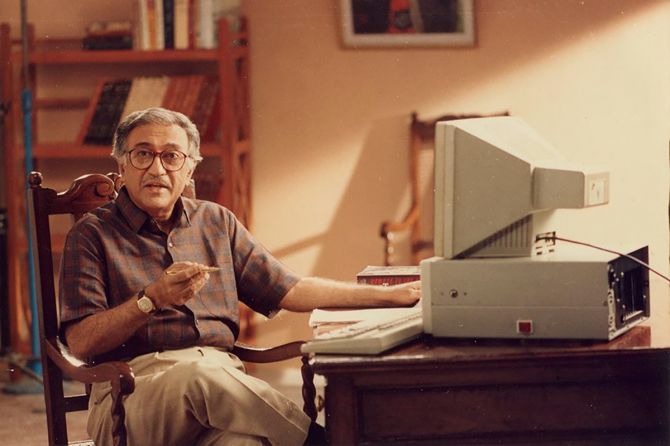
Radio legend Ameen Sayani, who breathed his last on February 20, shared the anecdote with Pervaiz Alam, a former broadcaster with BBC Hindi.
Sayani, 91, regaled Alam with several stories that are now part of nostalgia -- just as he did millions of rapt listeners on radio with an iconic voice and mannerism that set the benchmark for broadcasters in India.
It is well-known how Keskar's moral policing became a boon for Radio Ceylon.
Keskar had his prudish notions on culture and decided to ban film songs on All India Radio (AIR) in 1952.
Sayani swiftly seized an opportunity at the Sri Lanka-based Radio Ceylon and presented the iconic Binaca Geetmala, a weekly show that introduced listeners to the catchiest new songs in a golden era of Bollywood.
The show ran from 1952 to 1988 on Radio Ceylon, before shifting to AIR's Vividh Bharti -- until 1994 with a rechristened name, Cibaca Geetmala.
Alam, who interviewed Sayani at length for an archive for public broadcaster Doordarshan, recalled growing up in Aligarh as an ardent listener of Binaca Geetmala.
"The traffic in the city would stop when his programme was aired. There were communal tensions and other problems, but on Wednesday evenings, he would say 'Behnon aur bhaiyon' and everyone would listen to his calm and soothing voice."
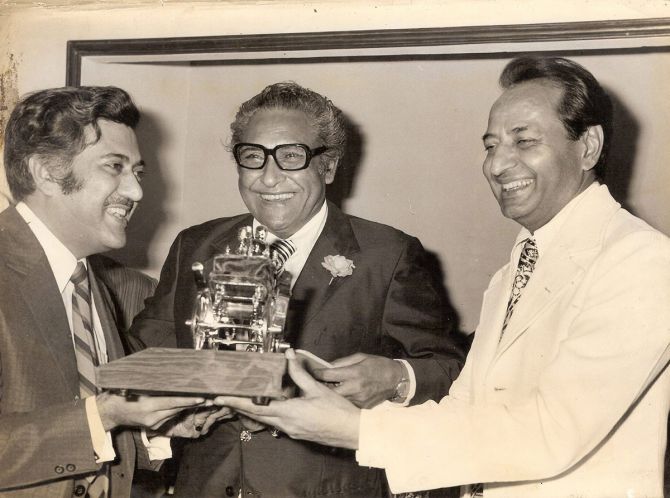
Sayani was born in Mumbai on December 21, 1932, in a family of freedom fighters. His mother, Kulsum Sayani, ran a fortnightly journal on Mahatma Gandhi's instructions.
"He was inspired to do something for the country. Even the radio programme was meant for the common people," said Alam.
"He kept his script very simple. And he kept his voice and diction very chaste so that people could understand each and every word."
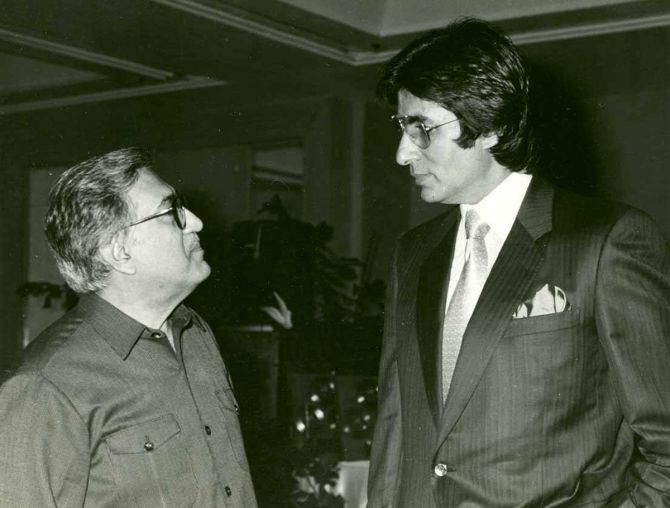
Vijaylaxmi Chhabra, former director general of Doordarshan, admitted that she wanted to be on radio herself because of Sayani.
As a young programme officer for Vividh Bharti in 1980s Bombay, Chhabra found a soft-spoken thorough gentleman in Sayani, whose programmes were outsourced by the government.
Sayani ran his independent company and produced Geetmala, but remained a guiding figure for his associates in AIR.
"Radio was everything for him. Some of us inherited that love for radio from him," she said.
"How he inspired so many people is most amazing. In small towns those days, during stage programmes, most of the announcers tried to speak just like him."
"When he spoke, the whole nation listened. I don't think anybody could grab that kind of attention on radio," she added.
Among the many broadcasters he inspired is Shammi Narang, a former news anchor and one of India's best-known voice-over artists.
"What is a good dialect, punctuations, stresses, pauses, diction... we have learned all of that from him as we grew up listening to Binaca Geetmala," Narang said.
In television, anchoring demands a more serious style of presentation. Yet, Narang said, subconsciously, many in his generation embodied Sayani's style of modulation or articulation.
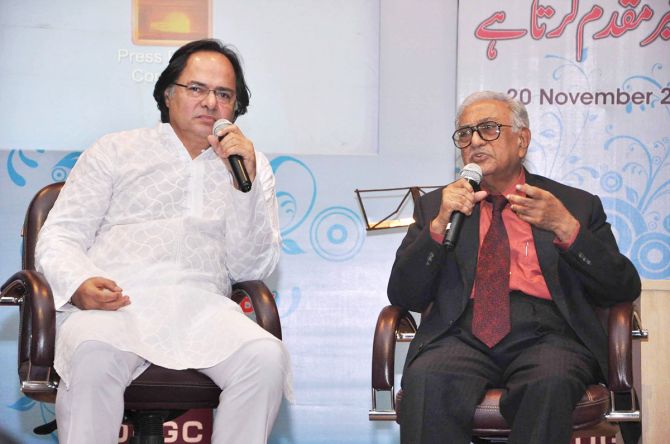
Sayani marked an era much different from today's highly commercial space when numerous channels compete for audiences.
Abhilash Thapliyal, a film actor, radio jockey and television host, said Sayani's legacy continues to influence the new generation.
"He gave RJ-ing a certain style for sure and created a format for all of us who followed. The only problem with style is people start aping," he said.
"Now, it's more about personalising your style and figuring out the personality you want to present on air. Ameen Sayani was copied by generations. Now everyone is trying to become smaller Ameen Sayanis in their own way."
Thapliyal added that Sayani was a reference point for interviews as well.
"In India, at least, the format was set by him. With Ameen Sayani, he was always at par with the interviewee," he said.
"It was an interaction or conversation between two people of the same stature. Now, when we are talking to a celebrity, we are only interviewing them."
With Sayani's passing, a voice generations grew up listening to has fallen silent.
Feature Presentation: Rajesh Alva/Rediff.com
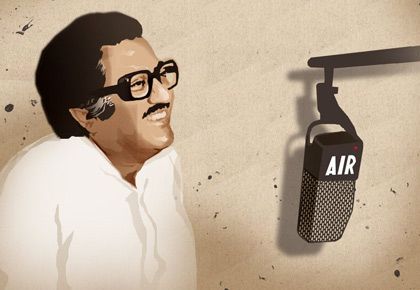



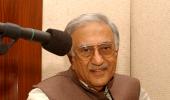

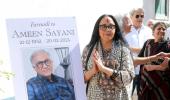






 © 2025
© 2025